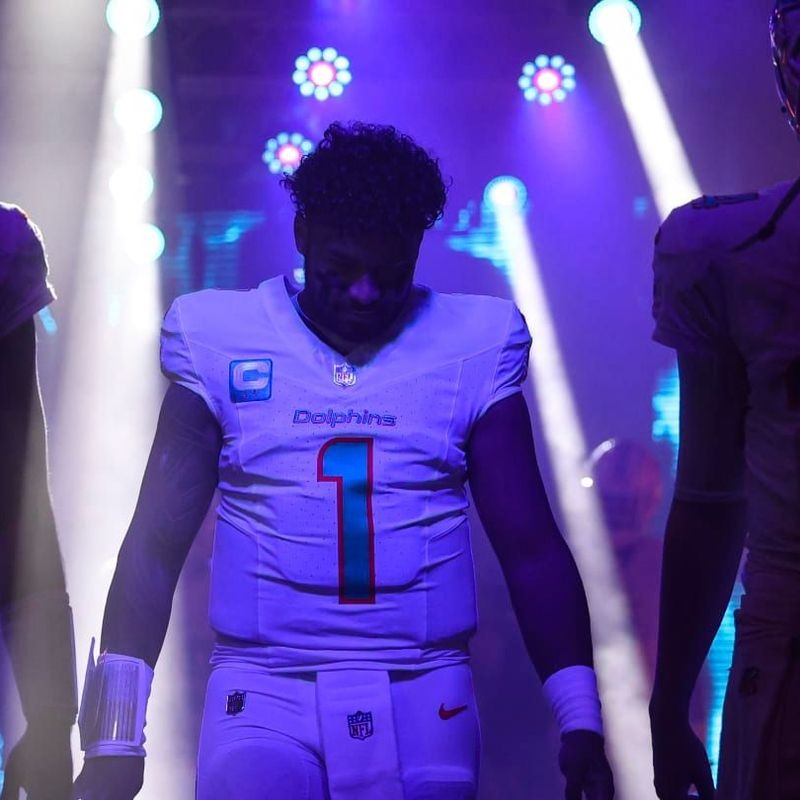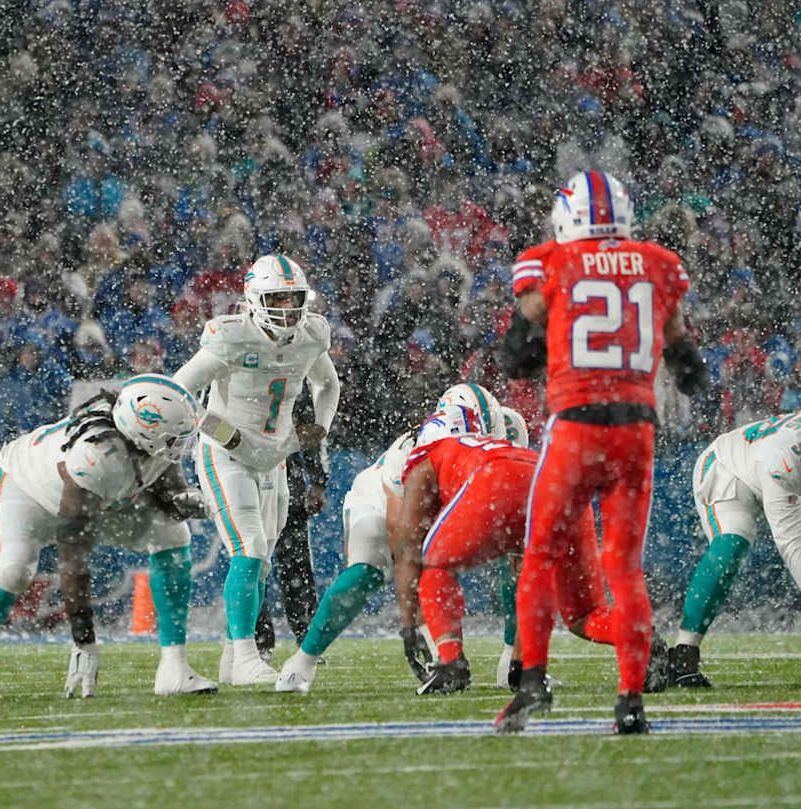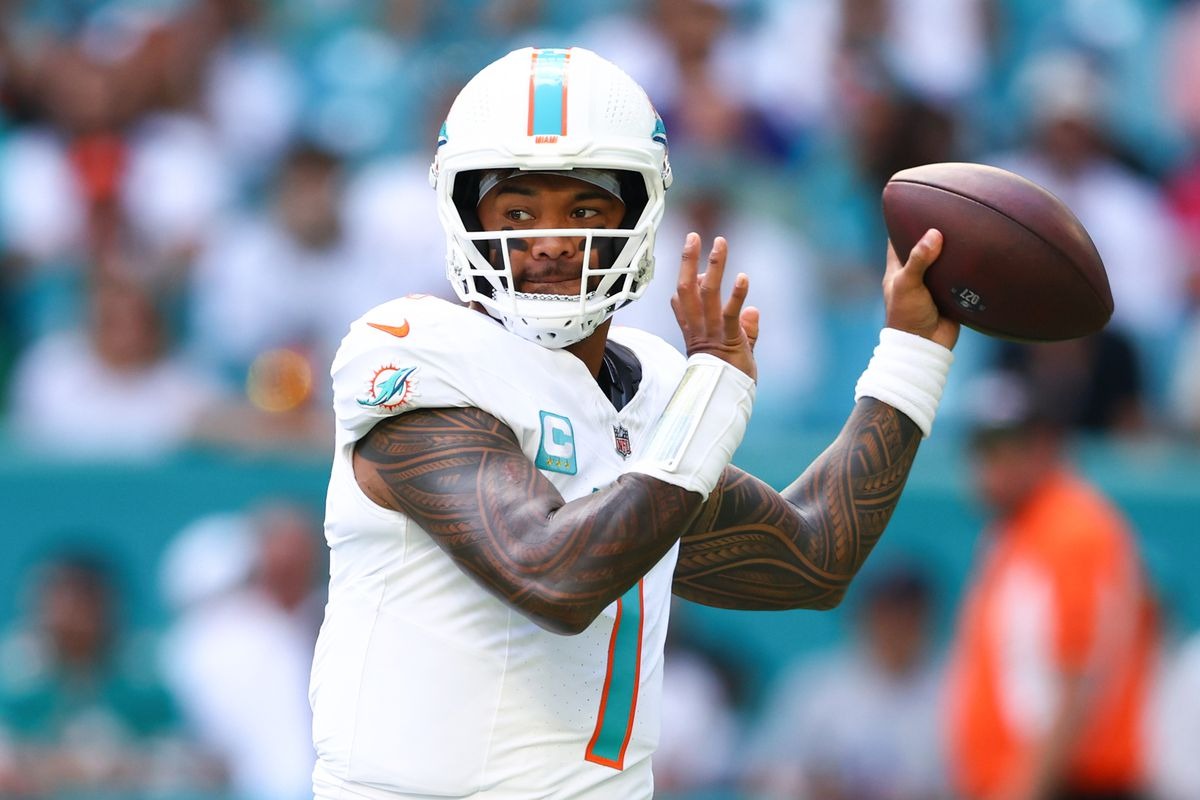In the world of professional football, the conversation surrounding Miami Dolphins’ quarterback Tua Tagovailoa is a battlefield of opinions. Labels fly like passes, casting those discussing his performance either as overly optimistic fans or cynical detractors. Straddling the middle ground in this debate often leads to criticism from both camps.
Tagovailoa’s capabilities and contribution to the Dolphins have become polarizing topics. Notable voices in sports journalism ranging from ESPN commentators to local sports reporters often downplay Tua’s achievements, suggesting he falls short of justifying a potential $55 million annual contract. They argue he lacks the special quality to elevate the Dolphins significantly, a sentiment echoed by a faction of the fanbase.
Conversely, a robust contingent of Tagovailoa supporters argue his comparability to top-tier quarterbacks like Justin Herbert or Josh Allen, attributing any shortcomings not to him but to factors like the team’s offensive line challenges or defensive inconsistencies.
For those seeking a balanced perspective, it seems the “Tua reality” occupies a space that acknowledges both his strengths and areas for growth. Tagovailoa is admired for achieving notable success despite less favorable conditions than some of his contemporaries, yet the consensus remains that he must demonstrate sustained excellence over consecutive seasons to be considered among the greats.
The Dolphins organization appears divided on their long-term commitment to Tagovailoa. The decision to invest heavily in him carries significant risk; it could potentially jeopardize the futures of Coach Mike McDaniel and General Manager Chris Grier if it fails to yield the desired success.
Despite the debate, Tagovailoa has demonstrated leadership and incremental improvement, leading the Dolphins through a full season and into the playoffs. Yet, the team’s aspirations and expectations continue to climb. Miami fans, often accused of being overly optimistic, have high hopes for the upcoming season despite media skepticism and a challenging schedule.
The reality likely lies in a combination of continued development from Tagovailoa, strategic improvements from McDaniel, and health and performance on both sides of the ball. Despite contrasting opinions and predictions, the Dolphins’ performance in the upcoming season will ultimately be the judge of Tagovailoa’s impact and the team’s direction.
Critiques of the team’s prospects often lack nuance, ignoring the minimal changes to the roster and the areas where the team has strengthened. Similarly, fans’ unwavering confidence might overlook the complexities of achieving NFL success. Ultimately, the Dolphins’ future hinges not on polarized views but on the tangible progress of the team as a whole, led by a quarterback who remains at the heart of the debate.




